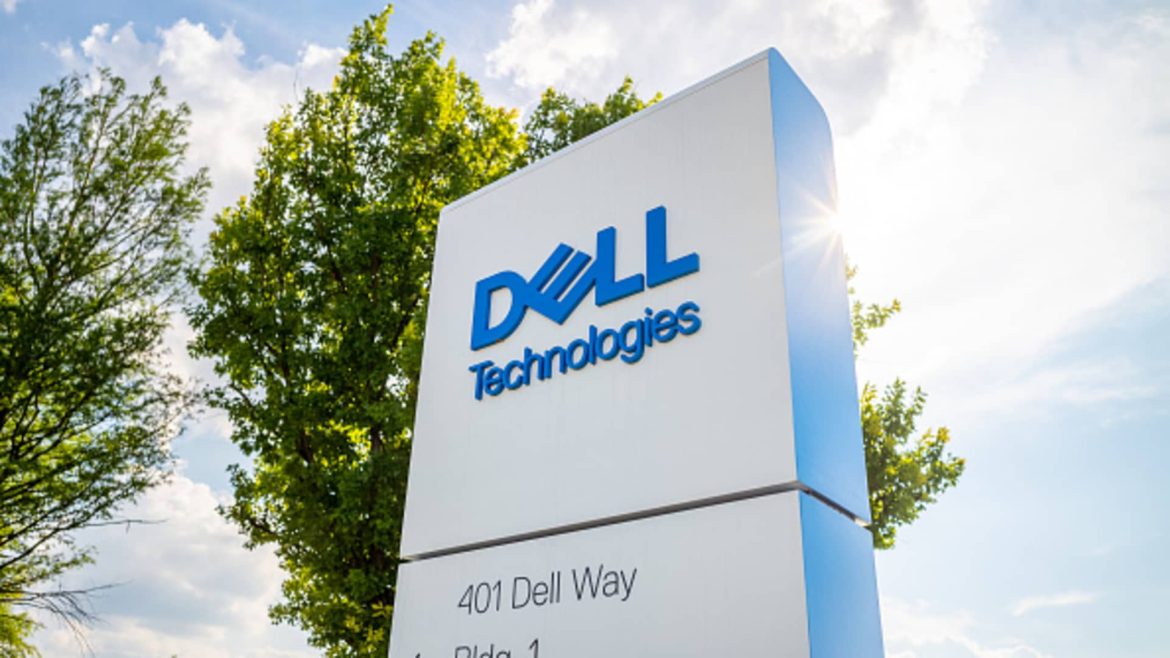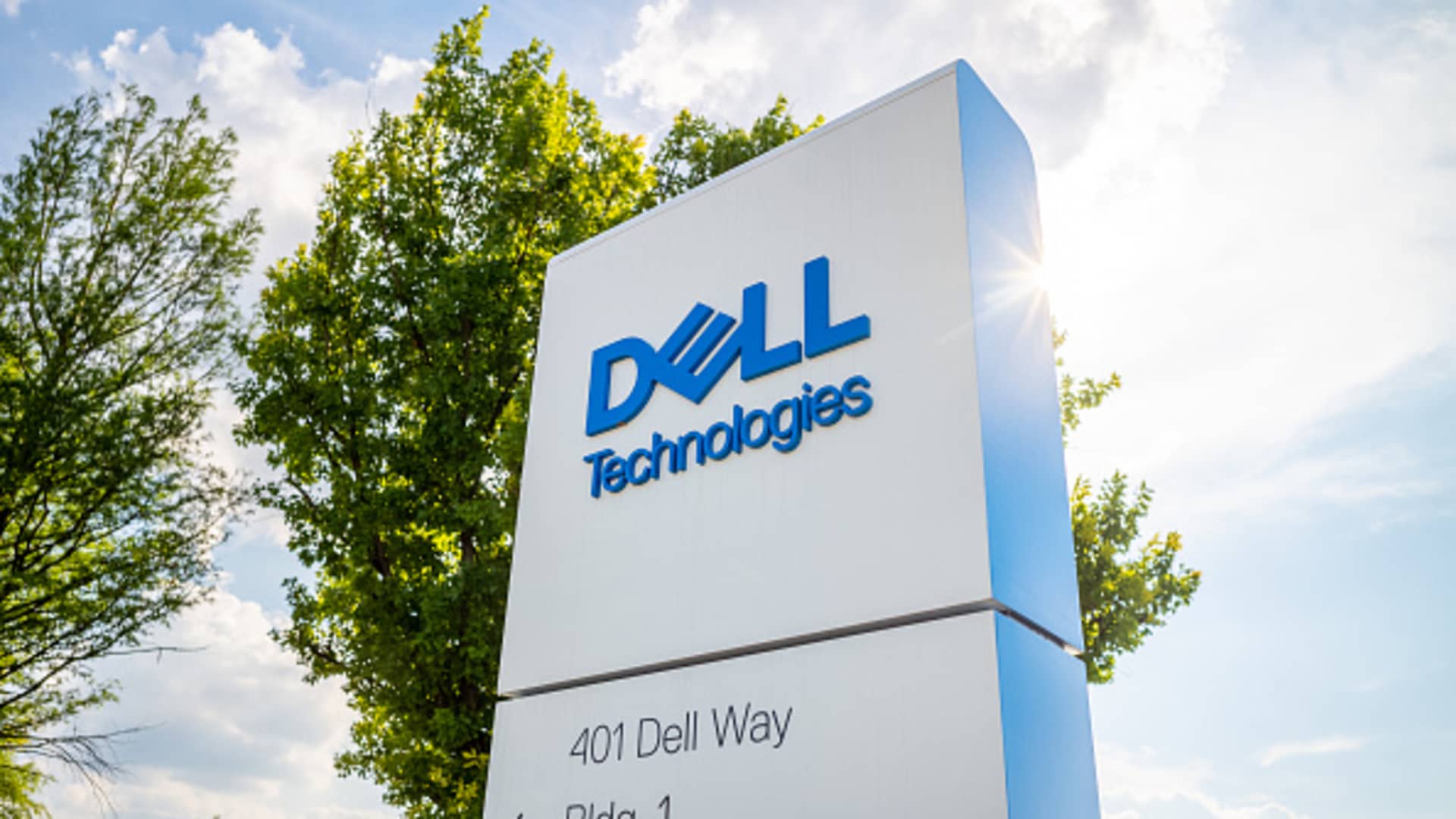Dell Technologies is making significant waves in the market, propelled largely by surging demand for artificial intelligence (AI)-optimized servers. This momentum has driven the company to raise its full-year earnings and revenue forecasts, leading to notable increases in its share price. The current landscape for Dell showcases both the opportunities AI presents and the challenges embedded within scaling such a specialized technology.
AI-Powered Growth Driving Revenue and Earnings Upward
Dell’s shares have risen approximately 4% to as much as nearly 20% in extended trading sessions following quarterly results and forward-looking guidance that exceeded analysts’ expectations. The core catalyst is the company’s AI servers—systems equipped with Nvidia’s powerful chips—that are seeing strong buy-side demand. Specifically, Dell has forecasted AI server sales of about $15 billion in fiscal 2026, up from $10 billion in the previous year. This roughly 50% increase evidences the rapid uptake of AI infrastructure which Dell is capitalizing on.
Revenue growth in Dell’s server and networking segments surged 80% in some reports, with AI-optimized servers growing sequentially by about 23%. Overall revenue for Dell is projected to hit between $101 billion to $105 billion for fiscal 2026, outpacing some analyst consensus, while adjusted earnings per share (EPS) were raised modestly from $9.30 to $9.40. This represents steady profitability improvement aligned with the AI growth trajectory.
Nvidia Partnership and AI Infrastructure Leadership
A key enabler behind Dell’s recent strength is its close alliance with Nvidia, a leader in AI chip manufacturing. Dell is recognized as one of Nvidia’s primary system integrators, delivering servers purpose-built for AI workloads. This collaboration allows Dell to offer cutting-edge solutions that meet the demanding computational needs of AI training and inference.
The importance of this relationship is highlighted by the robust backlog of AI server orders and the recognition that companies across industries need increasingly powerful data center equipment to develop AI models. Dell’s ability to deliver high-performance infrastructure with Nvidia GPUs positions it as a top vendor in a fiercely competitive market.
Margin Pressures and Cost Challenges
Despite positive top-line momentum, Dell is grappling with profitability pressures linked to higher costs of building AI servers. Reports indicate a forecasted decline in the company’s adjusted gross margin rate for fiscal 2026 as a result of these expenses. The AI hardware requires advanced components, greater energy consumption, and complex integration that drive up production costs.
This challenge has created some volatility in Dell’s share price, with some market reactions negative due to concerns the increased cost base could erode net income. Additionally, Dell’s PC business has shown softness amid weaker demand, contrasting with the growth in its enterprise server division.
Market Reactions and Investor Sentiment
While upward earnings revisions and strong AI server sales have fueled share price rallies, investors remain cautious about the sustainability of this growth. Market responses have varied: some cheering Dell’s ability to tap into the AI boom, others warning that margin compression and uncertain macro conditions could temper gains.
The company’s reiterated revenue outlook at around $103 billion suggests measured, not explosive growth expectations, factoring in current market dynamics. Some investors appear to seek clearer evidence that AI-driven sales growth will translate into significantly higher margins and sustained profitability.
Strategic Outlook and Long-Term Growth Potential
Dell has committed to growing its revenue at a compound annual rate (CAGR) of 3% to 4% over the long term, indicating realistic optimism grounded in diversification beyond AI hardware alone. The AI server surge complements a broader infrastructure solutions group revenue increase but must be balanced against competitive pricing pressures.
In this light, Dell’s trajectory exemplifies a successful pivot to AI infrastructure while managing the complexities of integrating costly technology and navigating the cyclical nature of broader IT demand. Its ability to maintain leadership in AI-optimized servers, deepen strategic Nvidia ties, and control costs will be critical to sustaining investor confidence.
—
Conclusion: Navigating the AI Boom with Balanced Optimism
Dell Technologies currently sits at the nexus of massive AI-driven demand and evolving cost challenges. The company’s raised profit forecasts and record AI server sales reflect an impressive grasp of shifting technology trends, reinforcing its position as a vital player in the AI infrastructure space. However, margin pressures and mixed investor reactions underscore that this journey is not without hurdles.
Success for Dell will depend on its skill in scaling AI hardware production efficiently while continuing to innovate and diversify its offerings. For investors, Dell represents a blend of promising growth backed by AI momentum tempered by prudent market realities. As AI adoption expands across industries, Dell’s ability to adapt and capitalize could well define its story in the coming years.





